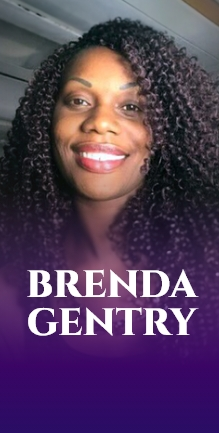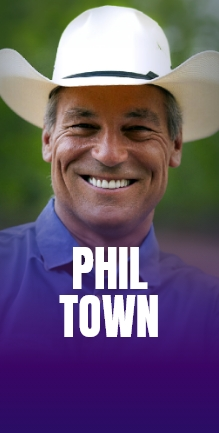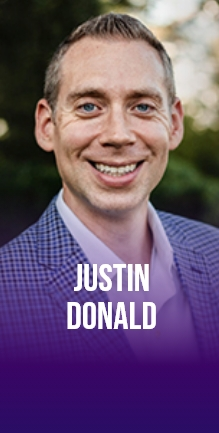In this Episode
- [00:46]As Stephan introduces Wendy O, he expresses his admiration for her Wall Street Journal and Time magazine appearances.
- [03:35]Wendy looks back on how she transitioned from the healthcare industry to the crypto space. Her crypto journey started when she walked into a TD Ameritrade and later purchased $1000 worth of bitcoin.
- [10:04]It takes effort to teach yourself when you are eager to do something. Wendy reflects on how she taught herself about bitcoin, cryptocurrency, blockchain, and trading as well as how she applied her knowledge.
- [15:15]As Wendy discusses, being intuitive and using your emotions to navigate something – allowing all of your energy to flow – is key to natural intuition.
- [17:45]Stephan explains the Kabbalistic concept and mentions The Game of Life and How to Play It, a book by Florence Scovel Shinn that he is currently reading. He wants to know about Wendy’s dark moments and how she overcame them.
- [24:19]Wendy highlights the importance of talking about pain and struggle in life, particularly when we triumph. She emphasizes that her role is not solely focused on cryptocurrency but includes assisting people in improving the quality of their lives.
- [27:38]How do traders adapt to a changing market? Wendy talks about the distinction between trading and investing and her trading style over the years.
- [31:50]After identifying the risks, decide and create a backup plan. Wendy discusses the risk associated with investing and offers advice to those in the crypto space on creating trading and investing portfolios.
- [33:58]Stephan asks about Wendy’s exit strategy and her moon bag strategy. Wendy mentions how important it is to practice good operation security in order to prevent being hacked.
- [38:10]Wendy includes suggestions on account security, mentioning cryptotag in particular. She advises listeners to store cryptocurrency on paper wallets rather than on third-party systems.
- [40:08]What distinguishes crypto margins from traditional margins? Wendy explains how margin works in crypto and how to use leverage correctly in response to profit and market value.
- [42:32]Stephan mentions the author of Rule #1, Phil Town, where he learned about stock trading, and Warren Buffet, who says rule number one is never to lose money. He also mentions Thinkorswim as a paper trading platform for beginners.
- [43:26]Wendy describes the value of math-backed strategies, such as technical analysis. She includes some useful platforms as indicators, such as Investopedia, Cointrader.Pro, EMAs, Market Cipher, and Fibonacci extensions and retracements.
- [48:12]Aspiring to be influencers on Tiktok, Youtube, or other platforms can take Wendy’s advice.
- [48:39]Wendy O’s website can be found here, and you can follow her on social media at @CryptoWendyO. On her YouTube channel, she also teaches the fundamentals of technical analysis.
Wendy, it’s so great to have you on the show.
Awesome. Thank you so much for that amazing intro and for having me on. It’s a pleasure.
I was really impressed to find that Wall Street Journal article about you. It’s really a feature about you. There’s this one article about TikTok influencers, and then there’s this whole feature piece just about you. That’s impressive stuff to be featured in The Wall Street Journal. It’s no small feat, so congratulations.
Thank you. We just got the news earlier today that we just made it in Time. We got a couple small exits in Time Magazine, which was really cool. It wasn’t a feature, but it’s just really awesome. It’s really cool just to kind of thrive in life. I’m blessed to be here. Thank you for having me.
Yeah, that’s awesome. Many, many more blessings to come, I’m sure for you.
Yes. Blessings to myself and blessings to you guys, too.
Thank you. I’d love to hear a bit more about your origin story. You went from the healthcare space to crypto when a lot of folks were still not even understanding what blockchain was.
We haven’t missed the bus yet, I know. It’s still early days. But still, what a great early adopter entry point for you that I’m sure made a big difference. How did that all happen for you? Was there some epiphany that you had, some synchronicity, a magic moment, just a chance meeting something that made you take that leap?
Investment is risky no matter what form it is. It’s vital to be smart about every decision not only mentally, but also emotionally and spiritually. Share on XThere’s a lot of things that go into it. A lot of people look at entrepreneurs that have done well for themselves, and they’re like, you had it so easy. Things would just fall into place. In reality, a lot of entrepreneurs are just not that good at storytelling, and they’re not able to really encompass all the struggles that happened.
My beginnings were very, very humble. My story wasn’t, I’m going to get into crypto, I’m going to become super rich, and I’m going to thrive and make it. It wasn’t like that at all. I had no idea what I was doing. All I knew is that I was working in infectious disease. I work for HIV/AIDS in the largest non-profit in the world.
I was at that job for seven years. I was at the company for a total of 10 years. They’re based in Los Angeles. Maybe they’re not based in Los Angeles anymore, I don’t know. I worked there for quite some time at that company. I started off minimum wage working in the thrift stores. That was my job.
I remember, I was working through 2008. I worked through the financial crash. I witnessed all of that. I was kind of just getting back on my feet, getting my life together, because I had a really rough upbringing. I had made a lot of really poor decisions for myself growing up and as a young adult.
There were a lot of things I had to overcome.
People just look and like, ‘oh, you had things super easy.’ No, I didn’t. In fact, my demographic actually was not one that really survived. There were a lot of things I had to overcome.
When I was working in the thrift store, I realized that the company that I was working for offered educational reimbursement. I’m thinking to myself, okay, educational reimbursement for what? Oh, health care. Okay, well, I’ll just go get a certification or go work in healthcare.
I was able to do that. It was around 2010-ish when the market was still absolutely terrible. In the training program that I was in, I had ex-executives. People making six figures a year lost their jobs because of the financial crash. They were trying to get a certification in health care so they could pay the bills, because everybody was losing their houses. It was a wild, wild, wild time.
I went and I got my certification. Then I was able to do my hours and do it through the company. The company reimbursed me. I think my mom helped loaned me the money. It was like $1000 at that time. I was able to double my income that way, because I got that certification.
I was like, you know what, this is so cool. I can go back to school, and then I can continue to make more and more money. I wanted to become a pharmacist. But the thing that people don’t tell you about school, especially if you want to work in healthcare, is that your salary is capped.
People think healthcare is a really, really great opportunity. You can make a lot of money. Yes, you can if you work in the correct place. But at the same time, your pay is capped, and a lot of people don’t talk about that.
The actual demographic of people living with HIV/AIDS is very diverse. So it’s not one size fits all, like other industries.
It’s funny. I actually got a job offer. My resume was out there. This one recruiting company reached out and they were willing to pay me like $20 an hour to do the same job I was doing five years ago. There’s no increase in the salary there. I’m just thinking to myself, this is absolutely insane, because of inflation as well. But anyways, fast forward.
My job became very, very stressful. I was round trip commuting three hours four times a week. I had a newer baby. My job was actually kind of dangerous. A lot of the clients that I would work with, some of them had a lot of mental issues. We didn’t get training for that. They just kind of put us in and said just figure it out.
On top of it, when you look at the actual demographic of people that are living with HIV/AIDS, it’s a very, very diverse demographic. It’s not one size fits all, like other industries. It was a little bit challenging. I was tied and got a raise for five years. I think I started making $15, and then I got maybe the collar rate increases, which was like 30¢ here, 10¢ there.
I was making $15 an hour for five years. The company refused to give raises, so I was like, I got to do something different. When I went back to school, I thought I wanted to become a pharmacist. I found out the student loan debt I would have to accrue. It would be close to $300,000 to get a job making $150,000 a year if I was accepted to pharmacy school, because people don’t tell you that you have to be accepted.
You don’t just get to get your pass and then get to get it. That was very discouraging to me, I was like, you know what, this is not where it’s at. I can’t keep doing this. I was interested in starting my own business, but I didn’t know what kind of business. I just knew I was able to flip stuff and use designer goods on eBay. I learned how to value things while working in the thrift store, so I was able to pay for community college that way.
I was interested in starting my own business. I just knew I was able to flip stuff and use designer goods on eBay.
I said, you know what, I’m going to quit my job, I’m going to finish school, because people go to school, they get a business degree, and then they make all this money. That’s not true either. Be very careful what it is you decide that you want to get a degree on and take loans out.
I wanted to open a donut shop or a brewery. I don’t know what. I wanted something where I could work from home or work close to home, because I was driving so far. I heard about Bitcoin on Libertarian radio often—crypto. I initially heard about it in 2011.
A family member said, Wendy, can I borrow your card to buy bitcoin? And I was like, no, you’re crazy. Get out of here. What is this stuff? I didn’t think I was smart enough. I didn’t think I was tech savvy enough. I actually had to overcome a lot of personal insecurities to get where I am today, and I still struggle.
I remember, I was holding my daughter. She was crying. She was screaming. It was a rough day for us. I said, you know what, I have to do something different to figure out how I can make money from home. I don’t know how this is going to work out. Then I went and I bought bitcoin. I bought it on Coinbase.
Prior to that, I actually walked into a TD Ameritrade. I was like, I want to learn to invest in stocks. They’re like, well, we’re not going to teach you to invest in stocks. You simply give us $25,000 and we’ll invest for you. I was like, this is crazy. This can’t be real life.
With Bitcoin, after I bought the initial $1000 worth of bitcoin, Ethereum, and Litecoin on Coinbase, I saw that I was able to invest 24/7, 365. This was great. This was the end of 2017. People were like oh, she had it easy, she got in early. No, I didn’t have it easy, because I bought it at the top. I bought it really, really close to the top.
Yes, you did. I bought some too at the top.
I saw these anonymous cartoon characters on crypto Twitter making all this money.
My initial buy-in, I think it was under $10,000. But I kept buying a little bit, so I eventually bought the top. Then I started making all this money on all coins, because everybody was, but guess what, the market crashed. When the market crashed, everything crashed, so then I lost money. But I was teaching myself to trade during that time.
I saw these anonymous cartoon characters on crypto Twitter making all this money. I was like, if these guys can do it, I can do anything I want to do, so I taught myself how to trade. When I was teaching myself how to trade, I was still working, I believe. I was nursing at the time, so I was in between breaks pumping in the office working these 10 hour shifts. They didn’t really give us breaks or lunches. It was an absolute nightmare.
I taught myself how to trade. Simply, what I did was I just spent 10 minutes a day on my breaks or whatever before I went to bed. I educated myself about Bitcoin, about cryptocurrency, about blockchain, and about trading. That’s kind of how my journey started as a trader.
Yes, I lost a lot of money, but I also did okay for myself. The first year, I probably lost way more than I made. But the next thing that happened that was very interesting was I wanted to network. I was very antisocial. I was very insecure.
At that same time, I knew that I had to get out of my comfort shell. I didn’t know how I was going to do it. I didn’t know what I was doing. I just knew that people with large networks did better with those who didn’t.
I isolated myself for many years after I got my life together, because I didn’t want to make the same mistakes that I did growing up and hanging around with a bad crowd. Thus, when you put yourself around a crowd that doesn’t have your best intentions or that doesn’t care about you, people that are also not making smart life choices, you pull that energy with you. I knew that I had to cut those people off to get myself healthy again. But at the same time, in this new era of Wendy, I needed to open my heart back up and open my network backup.
I isolated myself for many years after getting my life together because I didn’t want to make the same mistakes growing up and hang around with a bad crowd.
I went to a meetup. I saw all of these crypto events, but you had to pay to get in. I was like, what? Why would I have to pay $500 if you’re going to be shilling me your ICO or whatever it was. I said, okay, this is a problem.
I noticed that there was a problem. I was doing a lot of research on entrepreneurship. A good entrepreneur will find a problem, and they will create a solution to it. I said, I’m going to host my own events. They’re always going to be free. Whether I’m sitting talking about technical analysis or that’s a networking event, whatever it is, they’re always going to be free.
I wasn’t making any money hosting these events. But I hosted my first event, and three people came. I was like, okay, this is kind of cool. Then I started posting content on Twitter. People liked my stuff, because I was one of the few females that knew how to trade and made decent calls.
I started advertising my events. Not paid advertising, but more like, hey, this is what I’m going to do, this is what we’re going to do, come hang out. Those kind of went off. We started from getting three people to come to 20 people, to 50 people, to 100 people. I’ve been able to host over four dozen free events across Southern California. We’ve done some in Chicago, I believe in New York, Florida, Canada—different places like that.
Now because I have a larger following, I have companies that will sponsor. That doesn’t mean I’m getting paid. That means my audience—they’re provided food, drinks, and stuff like that. That kind of took off.
One of the things I did was I saw that my audience was global and they wanted to be a part of these events I was having. I started live streaming them on YouTube, and that’s how the YouTube channel started. If you go to my YouTube channel and you look at the early days of Wendy, you’ll see me live streaming of meetups and events.

They’re not good quality, but that’s where my early origins started. It all snowballed into the media marketing I do, the YouTube channel, the TikTok, the MSM features. All of this stuff just snowballed from a mom who wanted to work close to home, to be a stay at home mom, but also bring in come home and just kind of figure things out for myself.
There was a lot of turmoil that happened during those times too, because I bought the talk. Crypto Twitter is not necessarily always a friendly place, especially for women, so I had to deal with a lot of that type of stuff. People that were upset, that I was around, that didn’t like that I was posting charts, that didn’t like sponsored content, and that type of stuff.
The bear market was a real thing that we all endured for a long time. It was from about 2018-2020. It lasted about 1000 days. People like, oh, well, you got in early, you made all this money. No, it didn’t work like that. There was a lot of turmoil that happened.
I think it’s important to always go back and talk about those hard times. because people assume entrepreneurship is easy. It’s not easy. There were snags that happened. I didn’t necessarily have a plan. I know a lot of entrepreneurs talk about having this plan.
I didn’t have a plan. I just knew what I needed to do. My gut told me, to network, put yourself out there, open your heart, talk to people, showcase kindness, take the same skills you learn working in health care, loving people for who they are, accepting them for who they are despite their flaws, and just showcase kindness.
Obviously, you do have to set boundaries. At the same time, the best way to be is to be open to other people and to different opposing ideas. That’s the origin of my story and how I got to be where I am today.
It sounds like that intuition—your gut—really played a pivotal role in the evolution of CryptoWendyO. I’m curious to hear what your definition of intuition is and how you would describe that to somebody who’s not really into the whole woo-woo thing, and they’re maybe skeptical or more scientific. How do you explain to them things like opening your heart up, going with your gut, just feeling into this sort of stuff, and then making a decision?
There are different forms of prayer. Some people pray to have a specific god that they pray to. Some people believe in themselves. Some people don’t believe in anything. Some people believe in numbers.
Personally, I’ve always been very, very intuitive and very in tune with what’s going on. Part of the way I was able to survive, despite all the craziness that I’ve seen that I’ve lived through, is listening to my gut and being able to read people really well. In my previous job, I had to learn to read people, because you get people that come in and they have this wall that’s put up, this wall of anger, turmoil, stress, and hate.
I’ve always been very, very intuitive and very in tune with what’s going on.
My job was to get these people to improve their quality of life. The way they were going to improve their quality of life is; going to their doctor’s appointments, taking their medication, not drinking, not using, not putting themselves in harm’s way, and not getting incarcerated again. I had to work with a really, really diverse group of people and be able to find something that resonated with them so that they could take care of themselves.
Part of that is listening and using your emotions to navigate something. When I talk about opening my heart, it’s just being accepting. It’s being accepting of what other people are, who they are. I’m not trying to change them, but looking for the good in them, and then also to be willing to receive and not focusing on negative stuff.
Humans get into this rut, where our minds just work in a negative aspect and we’re like, okay, well, this always happens to me and I’m terrible, or this person’s terrible, and this, this, this and this, instead of actually taking accountability for themselves. When I talked about opening your heart, your mind, your soul, being ready to accept abundance, and being ready to accept, like, if somebody wants to do something nice for you and maybe pay for your Starbucks behind you in the drive-thru, let them do it, and then pass that energy forward.
It’s more of analyzing situations, setting boundaries, but at the same time, also keeping an open mind. Because if you are very narrow-minded, you’re closed-minded, you’re negative, and you’re just everything. I hate this, I don’t like this, and if you just have this really negative mindset, how are you supposed to receive anything good? Or how are you supposed to even know when something is good or not?
Because if you are very narrow-minded, you’re closed-minded and negative.
I know it might not be the answer you’re looking for. When I talked about opening your heart, and being able to receive, and also when you receive something, give it back. If you want to keep it, you have to give it back somehow. You have to figure out how giving back works for you and what you’re comfortable doing.
Beautiful, and it really is about letting the energy flow. Not trying to hoard it for yourself, the idea of acquiring or receiving for the purpose of sharing instead of desiring to receive for oneself alone. This is a Kabbalistic concept I learned that seems to just kind of blow up or not work out well if you’re trying to receive for yourself, but you’re trying to receive for the purpose of sharing. The abundance just flows to you.
There’s a book I’m starting to read called The Game of Life and How to Play It. It was written in the 1920s by Florence Scovel Shinn. She defined intuition as teaching from within. I really liked that as I just learned that definition of intuition from that book a few weeks ago.
I’m curious to hear if you have had moments where you really doubted yourself and the decisions that you made, especially during those thousand days of the bear market and all your investments in crypto being down in the red. Did you have these moments of doubt in your abilities and in your guidance? Did you have a dark moment of the soul sort of thing? If so, how did you break out of that?
Of course. I also struggle with depression and anxiety. A lot of it stems from my past trauma, like some of the things that I’ve endured growing up. It wasn’t necessarily things I did. It was situations I would put myself in or things that people would do to me that I didn’t necessarily have control over.
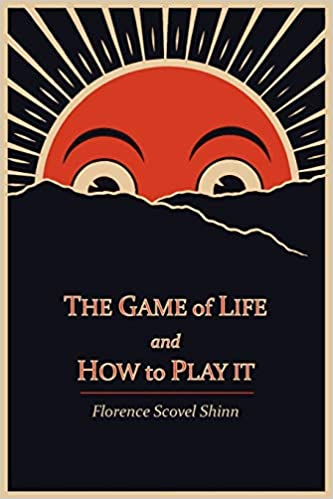
Part of that was forgiving, learning to forgive and say, you know what, that’s in the past. Yes, it’s important to say this happened. This isn’t okay that it happened. It’s wrong. Teaching my daughter, we showcase kindness. We do XYZ. At the same time, setting boundaries is super, super important to me.
I’m a very giving person. I will spend time talking with people, doing all kinds of stuff. But at the same time now, I set very strict boundaries. Things I do aren’t necessarily done to serve me. But at the same time, my time is valuable, and I am valuable. Yeah, I did experience a lot of sadness during that time.
When you’re one of the few female voices in a space, and people spread rumors about you that aren’t true, people send you death threats, they send you rape threats, they threaten your child, they threaten who you are, then it hurts. It hurts when people call you stupid, when they say that you’re not articulate, that you’re an idiot. The community was very small that when they spread those types of things and they say those types of terrible things, when they comment on your looks consistently, it hurts. It doesn’t feel good.
One of the things I realized is it’s either me or them. These people are trying to push me out. They don’t like my energy, they don’t like my essence, they don’t like who I am, it upsets them. You’ll generally see a lot of that as a woman in very heavily male-dominated spaces. That’s not a slam at men in any way, shape, or form, because there are a lot of really great men out there.
Unfortunately, the industry that I’m in with crypto, there are a lot of social issues there, because a lot of people aren’t taught how to communicate. A lot of people are not able to communicate. I have to also remember, a lot of people didn’t grow up in LA County. They didn’t grow up around the things that I’ve grown up around, that I’ve seen, that I’ve survived, that I’ve endured.
For a long time, I wanted to quit and I said, you know, I don’t belong here, I’m not good enough. But then I remember I’ve got a five-year-old daughter, and she was a lot littler then. If I quit, then that would show her that mommy’s weak. That would show her that mommy is letting some person that she doesn’t even know when. We don’t do that.
People will always comment on things because they have nothing better to do or are not necessarily happy inside.
We don’t let other people dictate what we’re going to do. If you are doing something, and you have good intentions, and it makes you happy, and you’re making a difference, it doesn’t matter what other people are going to say. People will always sit and comment on the state of things, because they’ve got nothing better to do or they’re not necessarily happy inside.
I know sometimes if you might hear that and you’re like, well, that’s just a cop-out, we shouldn’t coincide for people, and you’re 100% right. We shouldn’t coincide for people. That’s the way current society is set up.
For me, I’ve got this five-year-old daughter. I want her to thrive in the world. In order for me to help her thrive, I might not be the best parent ever, but at least she sees me getting up every single day, showing up, working really, really hard, and being kind to people, helping being of service. Hopefully, that will do something for her, and she can continue to thrive in life or decide to do whatever it is she wants to do.
After the bear market was over, I started getting so many women that would reach out to me and so many people—boys, girls, men, women—that reached out to me and said, thank you for being here. Thank you for being honest. Thank you for being you. Thank you for being unapologetic on who you are. Thank you for sharing your story about DV, essay, or mental health.
I’m not just crypto-exclusive. We also talk about mental health and social issues because we don’t have a lot of people bringing light to this stuff.
I’m not just crypto-exclusive. A lot of people are like, oh, just a crypto influencer. No, we talk about the importance of mental health, because a lot of people struggle with mental health. We talk about social issues, because we don’t have a lot of people bringing light to this stuff.
For me, personally, one of the reasons why I stuck around is nobody was talking about that stuff. Nobody was hosting events. Nobody was doing what I was able to do. I did lose money investing in 2017, but I also taught myself how to trade, so I was able to mitigate risk a lot better.
I was able to, instead of holding a bag from $100 to $1, I was able to mitigate risk and have a trading plan. Maybe instead of taking a 90% loss, I’m able to take a 20% loss or something like that. There’s a lot of different things that happen. For me, it’s more so that I brought another life into this world.
My job as a parent is not only to provide to keep her safe, to keep her healthy, but to show her that the world might not agree with everything you do, but to keep showing up, to be consistent, and to showcase intent.
Yeah. Kids don’t really pay attention so much to what you say, much more so, they pay attention to what you do.
Correct. They don’t.
When you’re modeling behaviors, that’s where the juice is. One thing that I learned about criticism and critics is that you can’t be a critic and a creator at the same time. It’s very hard. You’re either in critic mode or you’re in creator mode. That’s something that I pay very close attention, to be in the creator mode and not critiquing or criticizing. It’s like, are you creating or are you complaining, really?

Also, too, people do not want to hear about negativity. It is important, obviously, to talk about struggle, to strive for pain, but they want to hear how you were able to defeat it or what you’re doing to work towards improving your quality of life. For me, a big part of my content is helping people improve their quality of life. My investing is different from your investing. Your investing is different from the audience investing.
One of the key pieces of information that we reiterate a lot is that I want to provide people with the tools to do well in life, whether it being emotionally secure, investing, or whatever it is. Oh, you want to start a business? That’s great, I’m here to support you. I want to help people realize the potential they have in themselves, because every single human being is very powerful. You all have good things inside of you. It’s about finding those things that you’re good at figuring that out.
For a long time, I didn’t know what I was good at. I just thought I was a waste of space for such a long time, because I had all these terrible things that happened to me. Some of them, like, I put myself in bad spots and I’m not going to coincide with my BS and be, oh, you’re this great person and you just had all these terrible things happen. No.
Storytelling is a skill. Many entrepreneurs need to master the art of good storytelling where they can encompass all the struggles and provide the solutions in their narrative effectively. Share on XSome of the stuff I put myself in bad situations, but I think for a long time, I was so depressed and so sad that I wasn’t able to talk about the positive things, like what was I good at? I just thought it was a waste of space, but that’s not true. Everybody has some good things inside of them, whether you’re just a good parent, or whether you’re really really good at making peanut butter and jelly sandwiches, or you’re great at lifting weights, or boxing, or whatever it is.
Everybody’s good at something. Some people’s talents are going to be different. You might want to be talented in something, but you’re simply not. You’re talented in something else. We’re all talented in things that are there to help us build this foundation. You just have to figure out what you’re good at.
Take what you’re good at and apply it to other things that you want to be successful. It magically falls into place. I know that’s not a good answer, but it really does happen. Like I said, you have to keep putting yourself out there, and opening your heart, and doing good. Obviously, set boundaries, but just do good.

Yeah, I love that. I think that’s a great answer. I had to learn how to drop into my heart and make my decisions from there to listen to my heart. Something that seems right, just, and appropriate to my head, to my logic, isn’t the most benevolent thing I could do when I drop into my heart and I truly connect.
I’m reading the book, The Alchemist. When you connect to the soul of the world, and from that place, make a decision about how you’re going to act and how you’re going to be in the world, so much more light gets revealed in that situation.
I agree.
Yeah. Speaking of peanut butter and jelly sandwiches, my wife tells me, I make the best ones. I made one for her and for my two-year-old this morning.
See, you’re always good at something.
That’s right. Can we talk about trading versus investing? I think this is an important distinction in how to mitigate potential downside, like you said, going down maybe 20% instead of 90% because of the trade trading strategies that you have.
I love this. Yes, we can do this. This is a really big part of what I talk about. I will say it until I’m blue in the face, because people just need a reminder. Trading and investing are completely different. We’re going to be talking about crypto for purposes of this video or this show, because that’s my get-down, that’s what I do.
Even if the information doesn’t necessarily resonate with you, you’re still exercising your mind. A lot of people forget how powerful that is.
Traditional assets are fine. I’m not a really big fan of them, because I do think it’s manipulated, but it’s manipulated in a different way. We could talk about that another time. Most people are not traders. Most people do not have what it takes to be a trader. That’s not a slam on anybody. It’s an absolute fact.
My trading style has changed over the years. The reason why it’s changed over the years is because the markets change. I realized that I’m not necessarily good at trading in a bull market because it just doesn’t work for me. I’m better in a bear market, because I’m able to spot the tops, and short those a little bit easier, and whatnot.
One of the things that I recommend people do is figure out if trading is for you. The way you figure out if trading is for you, there’s a lot of great free resources out there. Investopedia is going to be your best friend. Investopedia.com is going to be your best friend. It is 100% free.
The only thing that you’re spending is your time. Yes, time is more valuable than money, but you’re investing in yourself. This might sound silly, but I’m a firm believer, no matter what you read for the most part or what type of information you digest, especially reading, it helps stimulate the brain. Even if the information doesn’t necessarily resonate with you, you’re still exercising your mind. A lot of people forget how powerful that is.
When you want to obviously learn about the basics of trading, then you want to go ahead and have a paper trade. Paper trade simply means you want to go ahead and analyze important areas you want to enter, you want to exit and where you’re willing to put your stop loss, or to risk if the market reverses and goes down.
If you cannot paper trade, if you don’t have a positive trail of wins there, you’re not going to win at trading. Putting money on the table isn’t going to make you better, it’s going to make you worse because then you actually have added stress on top of your performance. Your emotions get involved. A lot of people are not able to separate their emotions from their actions. If you’re very emotional, trading is not for you.
With investing, especially in crypto, there are a lot of risks associated.
A better strategy is investing. With investing, especially in crypto, there’s a lot of risks associated, because a lot of people think that these Altcoins in these cryptocurrency projects are going to be the next Bitcoin. That’s not the case. I’m not being negative here, I’m being a realist. There’s a difference between opening your heart and being positive, but it’s also important to note the reality of things.
There are some things that simply can’t be changed. One plus one will always be equal to two, no matter what. When we’re talking about the difference between trading and investing, it’s important to know.
With investing, it’s a little bit different. You could dollar cost average on Bitcoin all you want. I think that that’s fine. But a lot of people think that they’re going to dollar cost average on these altcoins, and these all coins are going to perform really well.
If you look into the previous history on altcoins, and you look at the top 10 in 2017, the top 100, top 10, they’re no longer there. If they are, they’re maybe the top 1000. To me, that’s not something I’m willing to toss in $10,000 into and watch that $10,000 go from $10,000 to $1000. It’s something I’m simply not interested in.
A particular way we mitigate risk with that is we created something called the moon-bag. That is simply, when you’re in profit, you want to go ahead and remove your initial investment and take some profit out. Whatever you own on that particular asset, whether it’s cryptocurrency, a stock, or bitcoin, I don’t care what it is, it’s a moon-bag. You own it free and clear. The emotion is out.
It’s also important to note the reality of things.
The financial and emotional attachment is out. It’s simply an asset that you hold. It’s like having a cellphone that you’ve paid off completely free and clear or whatever it is. The reason why we do that is that you want to have additional capital that you can roll into something else, and rinse and repeat, and keep doing this over and over again. To me, that’s a really, really great strategy that’s worked.
Obviously, some of the bags that I have—the cryptocurrency bags, the moon bags—they’ve gone to zero, they’re not doing well. But then I also have some that have done really, really well. The cool thing about it is that I’ve already removed my initial investment and my profit. These things can go to the freaking moon and it’s great and I’m happy. The ones that have gone to zero, it sucks. It’s not a good feeling, but at the same time, I’ve already removed my profit and my initial investment. That was part of the plan.
A lot of people discount the importance of having a plan when it comes to investing. They think cryptocurrency is like stocks, and it’s not. Even the stock market, to you guys, if you didn’t live through 2008, I highly recommend you go back and do a lot of research. You saw how many people’s 401(k)s, IRAs, traditional investments, were completely wiped out—absolutely decimated and wiped out.
The stock market is marketed to you to where if you invest in a 401(k) and you have these fancy-schmancy financial advisors invest for you, you’re going to do well, you’re going to have all this money for retirement. But what they don’t tell you is they don’t educate you about inflation. They don’t tell you that an investment is risky no matter what it is. Whether you’re investing in the stock market or in cryptocurrency, there’s going to be risk associated.
Many people discount the importance of having a plan for investing. They think cryptocurrency is like stocks, and it’s not.
It’s important to identify that risk, and then make a decision that way, and always have a backup plan. In crypto, I think it’s important for people to have a trading portfolio, and investing portfolio, and you have a bullish scenario, or a bearish scenario, so you understand if the market does really well, you’ve got these particular things that you’re going to do, these actions that you want to execute on. If the market does decide to turn, you have these particular actions that you want to take to mitigate your risk.
Maybe you’re only comfortable with taking a 10% risk. Do you want to have that in your trading or investing plan? Maybe you’re comfortable with losing 80%. Again, it’s up to you. Personally, I don’t want to lose 80%.
At the same time, we’re never going to be able to time the market 100%. We’re going to be able to do the best that we can, but it is important to have this reality, the situation noted down and plan for it. That’s not being negative and it’s not closing your heart off. It is being smart and it’s protecting yourself, your heart, and your assets.
Yeah. You can be woo-woo and head in the clouds, but you still have to pay your bills and you still have to show up for work. You can’t shirk your responsibilities. Your responsibility is actually to draw down that energy of the higher dimensions and put it into action in this physical world, not just float up in the sky and forget about all the things you have to do during the day.
I’d love to hear a bit more about your exit strategy and how that relates to these moon-bags. Is it at 10x, you sell 10%? Is it a lower threshold, maybe 3x or something like that? How do you set those exit strategies up?
It depends on what it is. If it’s a blue-chip project that I’m interested in investing in those types of gains, you’re not going to necessarily see a 2x-5x to 10x. But what you will see, you’ll see 20% pumps, 40% pumps, 10% pumps. Setting a limit order is very, very powerful.
Market buy is not necessarily your best friend or something you want to do.
A lot of people just want to market buy, market buy, market buy. Market buy is not necessarily your best friend. It’s not necessarily something that you want to do. The only way I will market buy is if I’m getting that extreme FOMO and I’m like, oh, my god, I got to market buy. But it’s with 5% or 10% of my particular stack for that investment.
I do like to set a lot of limit orders to buy in and to exit out. You can simply take profit every 10% up. I’ve got videos on how to do that. Though we’re talking about the moon-bag strategy with some of the more risky stuff or the ones that do have more potential upside, it’s simply, I generally drive-through and sell half or triple on it. I will sell half, generally, on a triple or double.
Some people are like, Wendy, you’re crazy, this stuff can go 10-20 times. Guess what, I know that. I’m very aware of how much money I can make. But at the same time, do I want to risk that? Do I want to risk my capital and do that?
What I can do is I can simply sell half on a double. Then as the price goes up more, I can take out more, and more, and more as the price goes up. I still have this asset that I own free and clear. It’s like a savings account, where I’m just pulling money out, and pulling money, and pulling money out. It kind of depends.
Another exit strategy I do have is when I’m taking profits. Sometimes I’ll go ahead and I’ll put it into stable coins. Stable coins are great, because we have so many centralized platforms now that I can earn 8% APY, 10% APY, or 5% APY. Your savings account is only paying you 0.3%. But with crypto, with a stable coin, which is a stable coin that has very little risk, especially USDC, is generally pegged 1:1 by the US dollar. You will see some minor price fluctuations between 0.97¢ or $1.02, but for the most part, it’s stable.
If you literally could take $100 out of your savings account by USDC, leave it on a centralized platform just as long as you understand the risks, and you could practice good OpSec, and then earn 10% back, 8% back, or whatever it is.
You'll make more money if you have more understanding, more educated and well-versed in the market. Share on XYeah. OpSec, that’s operation security. Is that what that stands for?
Yeah. In crypto, a lot of people think that crypto is like the banks and it’s super secure. It’s not necessarily super secure. When I talk about OpSec, it’s important to have multiple different email accounts or addresses for different exchanges. The reason why we do that is because you want to make sure that if somebody does hack you, SIM swapping, or whatever it is, that you’re making it harder for the bad people to get your stuff.
One of the things you want to do is to create a silly email address, like ilovedogs134 or something silly. Come up with different email addresses that are not directly related to you or your identity that you’re registering for these crypto exchanges. Come up with separate passwords. You have to have Google 2FA.
I never recommend using any crypto apps on the phone that you use every single day to talk to your family and ever. It’s always good to have a separate phone for crypto stuff. Keep it offline. It makes it harder for these guys to get at you.
There are different things you could do OpSec-wise. You never want to share your passwords, your private seed phrases, that type of stuff. If somebody messages you and is promising you all these insane gains, they’re probably a scammer. They’re probably going to try to steal your money and you never want to give people your personal information.

Think of it this way. If a stranger walks up to you on the street and says, can I see your wallet? Are you going to give them your wallet? Are you going to tell them your child’s name? Are you going to tell them your birthday? No. If somebody comes and approaches you on the internet and is asking you for personal information, think about if you would give that information to a stranger you met, and then act accordingly.
Good advice, really good advice. Do you recommend particular hardware for securing, like a particular hardware wallet or a particular key generator instead of using Authy, Google Authenticator, YubiKey? What are your suggestions?
Yeah, a lot of people like YubiKeys. There’s also for your private seed phrase. There’s a company. Again, they’re not paying me to say this, but it’s called Cryptotag. You don’t even have to use them. I don’t care who uses it, but it’s basically like a titanium card. You can go ahead and enter in your information for that wallet there. Obviously, you want to make sure those are stored safely and securely.
People like Ledgers, people like Trezors, but this is very contrary to popular belief. The safest form to store your cryptocurrency is going to be on a paper wallet, because Ledgers and Trezors are still almost like third-party systems, because sometimes there are apps associated to get into those.
People that have been in the space for a very, very long time. One of my friends who was an early bitcoin miner, he is very big on paper wallets. Yes, paper wallets can disintegrate. But at the same time, you have things set up in a particular way, where there’s multiple copies and different things like that.
Unfortunately, there is no attorney’s office that can do crypto trust for you yet. Hopefully, we’ll start to see that type of stuff. I also want to recommend having a throwaway phone. You can use Google 2FA, Authy, or whatever on that throwaway phone. You want to keep it stored offline, because the reason why you do that is it’s going to make it even harder for bad people to get access to your stuff.
Successful people have insecurities too and they struggle with it along the way. It just depends on how strongly they desire to solve problems for others. Share on XOne of the things I do when I’m more in the trading zone, I have a separate laptop that I use just for trading. These are $200 laptops, super cheap. They just connect to the internet, whatever. Obviously, you have to use a VPN. But I also will use a separate laptop for some of my DeFi stuff and some of my crypto wallets. The reason why is I want to make it as hard as possible for people to track my stuff.
I may be using the same network, but if I’m using a VPN, it does minimize that to a certain extent. I want to make it really hard for bad people to track my stuff. Could they still track my stuff? Yes. But at the same time, I want to make it as hard as possible for them.
Yup. Solid advice. What are your thoughts around margin trading and taking out margin loans?
In crypto, it works a little bit differently than the way that traditional margin works. In crypto, we use leverage. Basically, we want to go ahead and utilize a platform that allows you to instead of trading a spot value, which is market value. Let’s say bitcoin is trading at $38,000, you only have $100, and you want to go ahead and make more money, so you would go ahead and open a position utilizing two times leverage.
Basically, that position you have, the gains that you would go ahead and get would be multiplied by two. Let’s say Bitcoin’s at $38,000, price goes up, you have a 10% profit. If you’re using two times leverage, your profit would be 20 times. However, if the market goes down and you should have shorted instead of long your loss, which was 10% at market value, it’s now 20%.
A lot of people don’t do this correctly. They’ll use a very, very, very high leverage. Leverage is great for experienced traders, people who have a proven track record, people who understand, I can lose a lot of money here. If you’re brand new to trading, you have no business margin trading.
Yes, I’m being a negative Nancy here, but it’s just the reality of it. I’ve had my accounts blown. I’ve been liquidated. I’ve done really well too. But at the same time, I haven’t done well, so it kind of depends.
Utilizing stop losses is important. Knowing what you’re doing is what really, really matters, because there is some serious risk for that. If your account does get liquidated, that means that the direction you called was incorrect. You’ve over-leveraged yourself way, way too much, and you lose all your capital. Let’s say your entire trading stack is $1000 and if the market goes the incorrect way, you can lose that entire $1000.
Yup. I know the hard way.
Leverage trading is very dangerous. Most people are not good at it.
Yeah. It’s a hard thing. I actually haven’t taken a leverage position in quite some time, just because the market has been really good, and there’s a lot of really other great opportunities. Leverage trading is very dangerous. Most people are not good at it.
The good thing about it is when you’re leverage trading to some of these platforms, they have their test net available so you can try it out yourself and see. That’s basically when you’re opening positions with their fake coin that they have to see if you’re actually good at it.
You can learn a lot from paper trading margin or with leverage, but at the same time, don’t think because you learn how to trade, you can start utilizing leverage and think everything’s going to be okay. Because chances are, you’re going to lose a lot of money doing that. Make sure you take advantage of all the free resources.
Right. I remember learning about stock trading from Phil Town. He’s the author of Rule #1. Rule number one, according to Warren Buffett, is never lose money, by the way. He has this whole investing workshop, which is fabulous. He was a past guest on the show.
He had all his students learn using Thinkorswim, which is a paper trading platform. That made it a lot less emotional and a safer environment for people who were just learning the ropes.
Awesome. I’m with that.
Yeah. All right. I know we’re running short on time, so let’s do a lightning round through a few more topics here. What’s technical analysis? Why does our listener need to know how to do it or maybe they don’t?
Technical analysis is basically a bunch of different tactics that you want to use. It’s a strategy. Most of the indicators you will see with technical analysis, they’re math-backed. Math is really, really cool. It’s really accurate. You’ll see math all over the place.
Part of the thing that people get wrong with technical analysis is they think it’s a scam or they think it doesn’t work. But the people who say that are those who fail to understand what it is. Basically, technical analysis is a bunch of tools that we utilize when looking at a market and saying, hey, XYZ lineup, so price is going to do Y.
Successful entrepreneurs don’t just deal with problems as they go. They seek the challenges beforehand and find ways to deal with them proactively. Share on XIt’s a very important tool to use. Some people like it, some people don’t like it. You don’t have to use it, but I think it’s important if you are actively investing yourself in cryptocurrency or any other asset. You understand the basics of it, because at the end of the day, the name of the game is making money.
You’re going to make more money if you have more of an understanding, and you’re more educated, and well-versed when it comes to the market. Thinking that you know everything, and not investing in yourself, and educating yourself on different aspects, the only disservice you’re doing is to yourself. Being closed-minded regarding technical analysis is kind of silly.
You can try it out. If you don’t like it, that’s fine. But at least you educated yourself to an extent to where you can say, I don’t like this, this is why it didn’t work. You could come up with an articulate expression as to why you don’t like it or why it doesn’t work. But technical analysis is very important just to understand the basics, whether it’s just basic support and resistance. I don’t think it’s hurting anything. All you’re doing is challenging your mind to learn about a new idea.
Yeah. Is there a particular tool that you really like for this? I know that you get candle wicks and everything showing up in whatever trading platform you’re using. There’s a TradingView as a platform to help with this. I’m not really savvy at all in this area of technical analysis, but is there a platform you recommend?
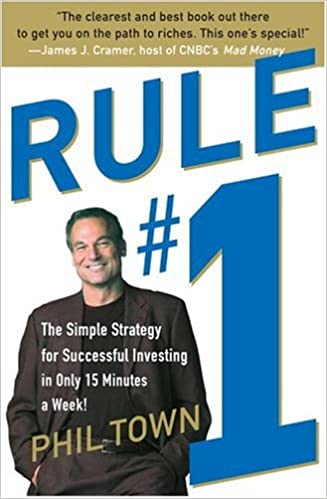
I’m going to give you guys some alpha here. Investopedia is 100% free. They’ll teach you about cryptocurrency, technical analysis, and traditional markets. Investopedia is your best friend. Another really great resource, TradingView is great, but they do have some paid stuff. The more indicators you want to use, you do have to pay for those.
There’s a website called CoinTrader.Pro, and it’s 100% free. It doesn’t always save all of your settings, but you can chart pretty much whatever you want there. They’ve got a lot of free indicators there. TradingView does have some of the paid indicators, but it’s a really, really great place to start in my opinion.
As far as different indicators, I use the free ones. I like to use EMAs. There’s a paid one that I use, one of my partners. It’s called Market Cipher. It’s another really great indicator that encompasses a lot of different tools.
EMAs are a very powerful tool and they’ll be able to help you where support and resistance is, all that type of stuff. Fibonacci extensions and retracements are really really great too. I highly recommend people look into those.
That’s awesome. As far as a YouTube video of yours that you highly recommend that gets people started with learning trading and exit strategy, the profit-taking at these different points, what would be a great recommended video to start with?
I have technical analysis basics. It’s on my YouTube channel. I think I’ve got like 10 videos, but I’d go over different indicators, free tools, different stuff like that. We also have a free newsletter that covers these things often.
Honestly, the more content you absorb with the pieces of information or style that you’re trying to learn, it’s going to help you a lot better. At least, that’s what helps me do that. Also, too, I recommend people to create groups of friends or people with like-minded interests, networking. Hang out with these people, learn from each other, talk about it. I think it’ll do a good service to you.
Yup, absolutely. For our listener who’s curious if you’re making more money being an influencer or you’re making more trading crypto, trading and investing, how do you answer that? I’m curious.
It’s kind of both. It depends what the month is. Some months, we do really, really well investing. Some months, we do better in sponsorship. It’s a nice breakup and it kind of depends.
Also, I do a lot of consulting on the side. I talk to a lot of companies about marketing and consulting, and good strategies to use. I link them with people in my network, so it really depends on what the month is or what’s happening, because there are some months where these crypto projects will go absolutely wild.
We’ll make a lot of really great returns with that. Other times, we’ll do better with sponsorship, so it really kind of depends. All I know is I log everything down. I send them over to my CPA and I say, just tell me how much I owe.
Don’t give up. Just get up and show up every day.
Thank goodness for CPAs and bookkeepers. Last question. If someone wanted to become a TikTok influencer, a YouTuber, or an influencer just generally across multiple channels, what would be the most important thing for them to do or implement?
Showing up everyday—consistency. Don’t listen to other people’s negative aspects or opinions of you. Just get up, show up, come up with a clear message that you want to give, and just keep putting content out. TikTok is a really great place to start making content. Then you could upload it to YouTube, to Instagram, to all different kinds of places. Don’t give up. Just get up and show up every day.
Awesome. All right, and then your website and where they would find you on social media. If you could share those, we’ll wrap up the episode.
Everything is @CryptoWendyO. The website, the emails, all the social media, Twitter, TikTok, Instagram. Everywhere is always @CryptoWendyO. I will never message you, because I don’t have any paid services. So if somebody messages you and is like, hey, I have a paid service, join my service or send me money, that’s not me.
I love you all so much, but I don’t have time to message everyone, because I’ve got a five-year-old I’m chasing and she actually put a toy pizza cutter underneath the door for some reason. I don’t know. Maybe she wants me to order her pizza. Everything is cryptowendyo.com. That’s where you can find me and my YouTube also.
Awesome. Thank you, Wendy. Thank you, listener. Now get out there and play with some paper trades and learn the ropes. We’ll catch you in the next episode. I’m your host, Stephan Spencer, signing off.





